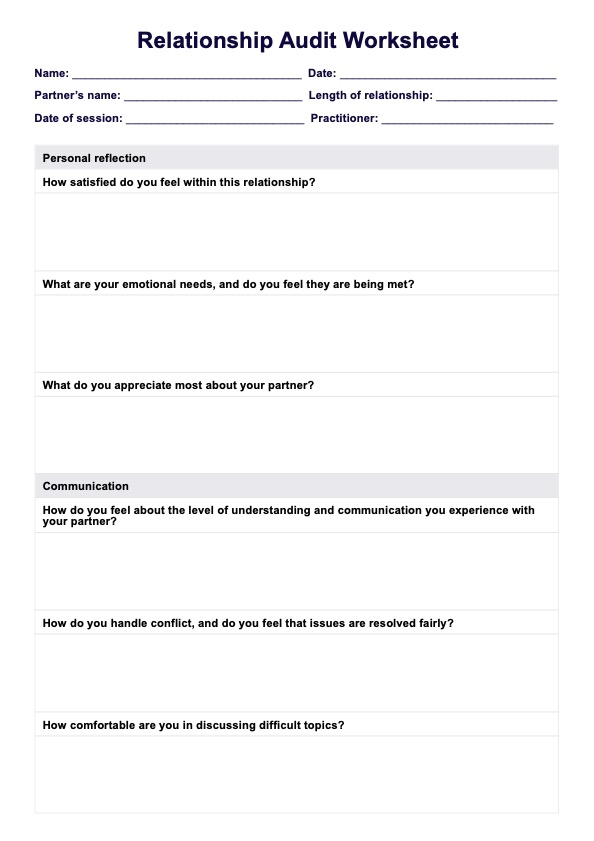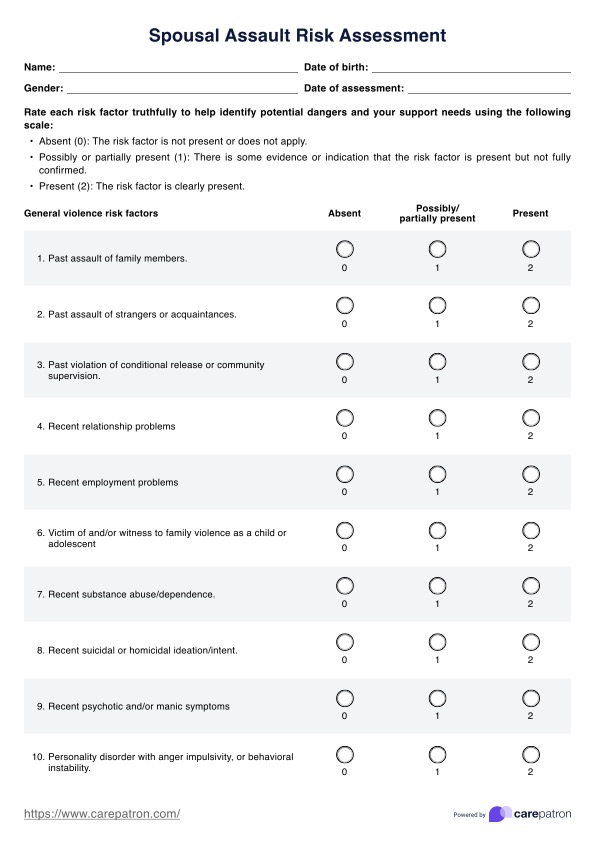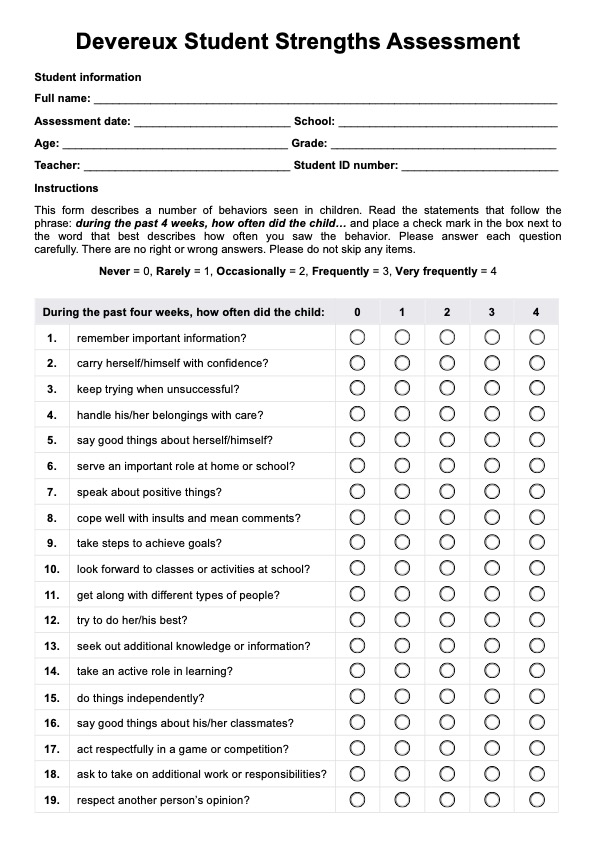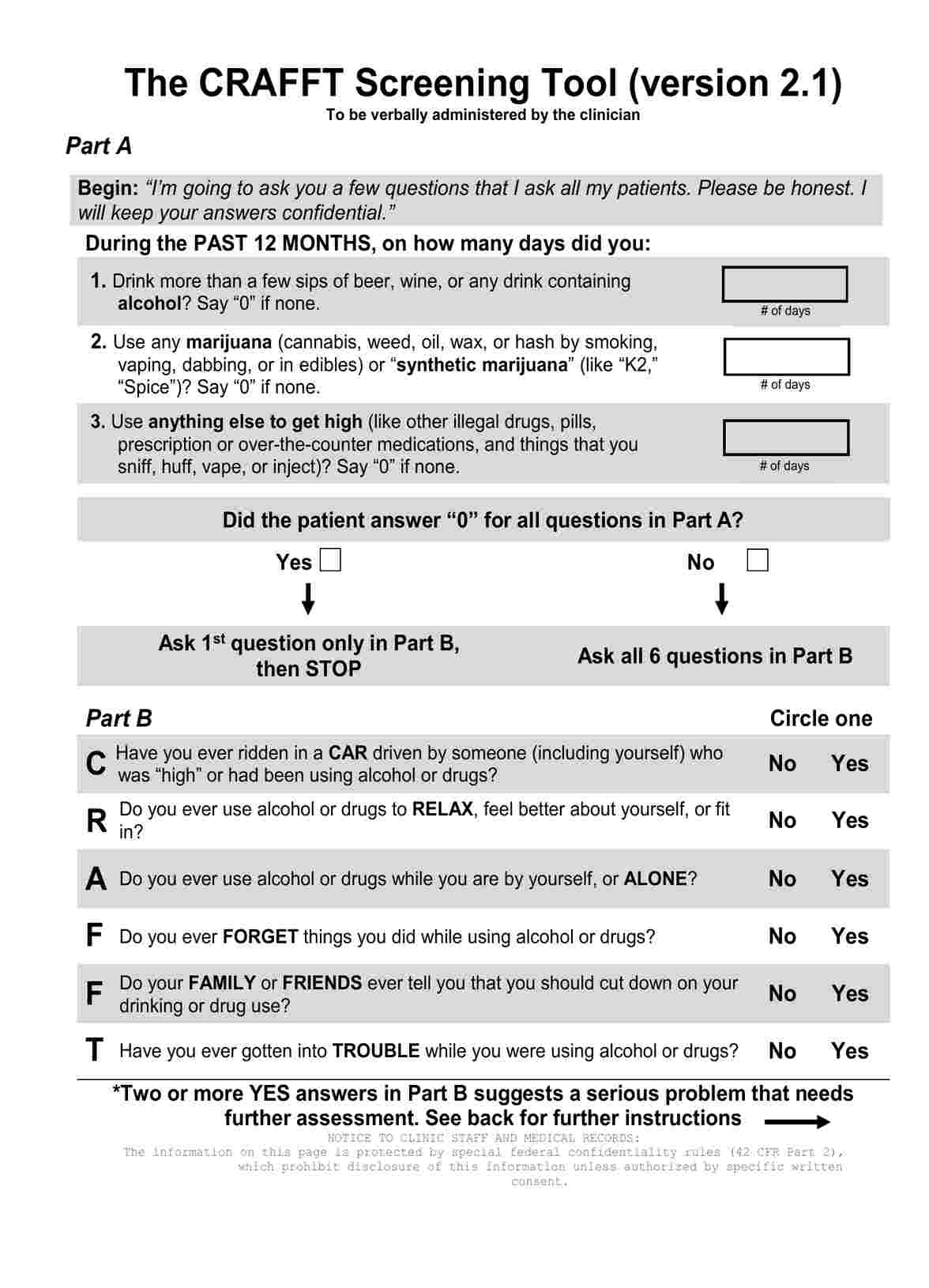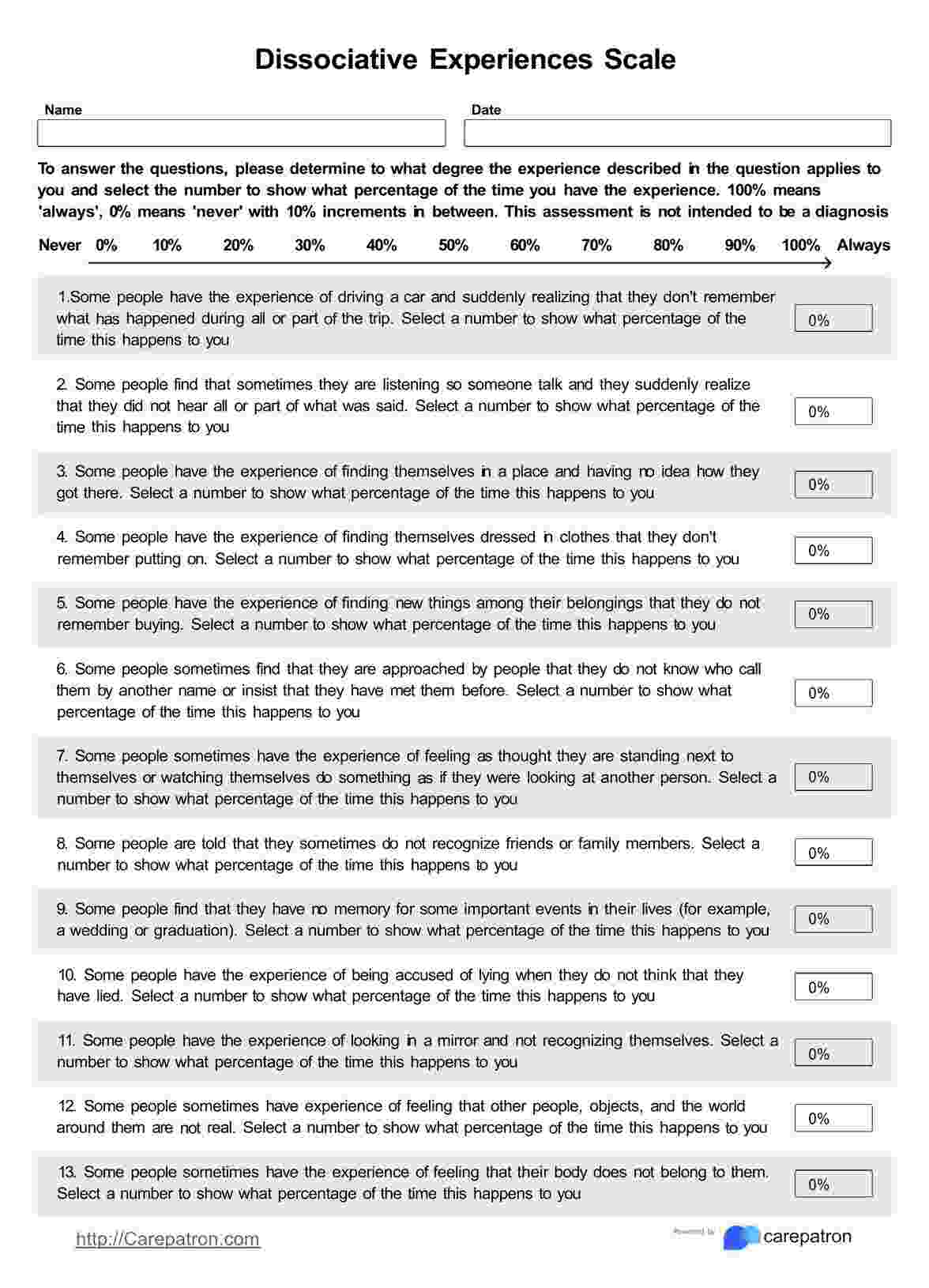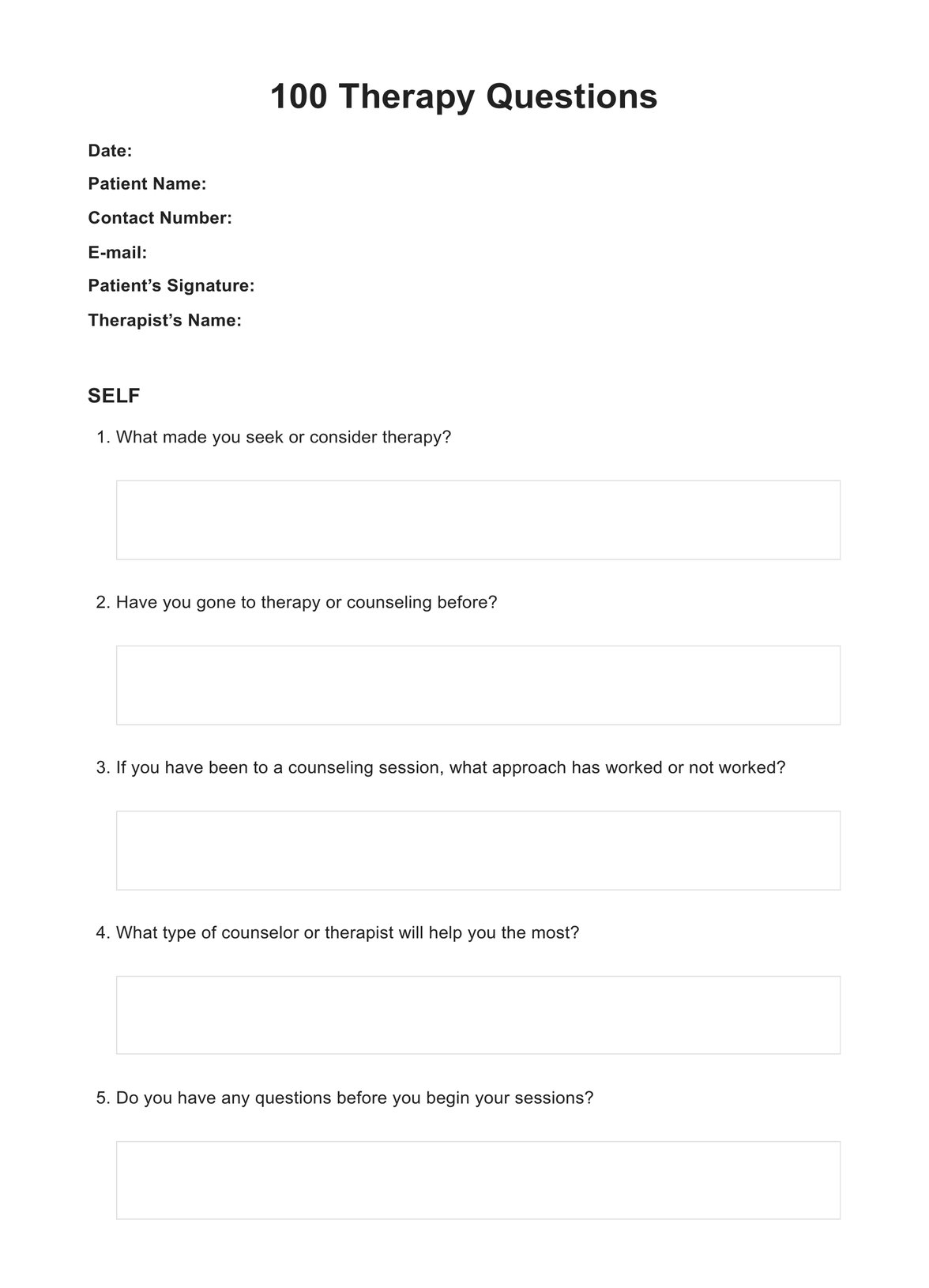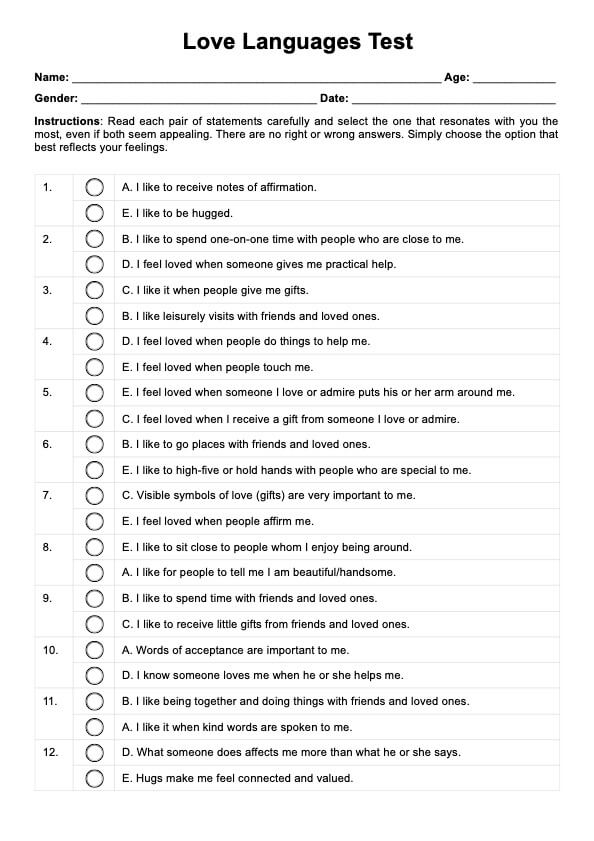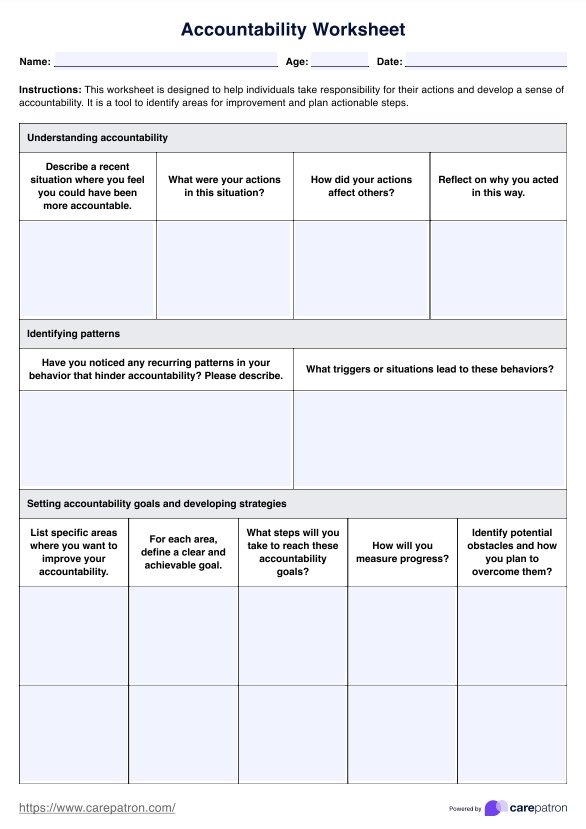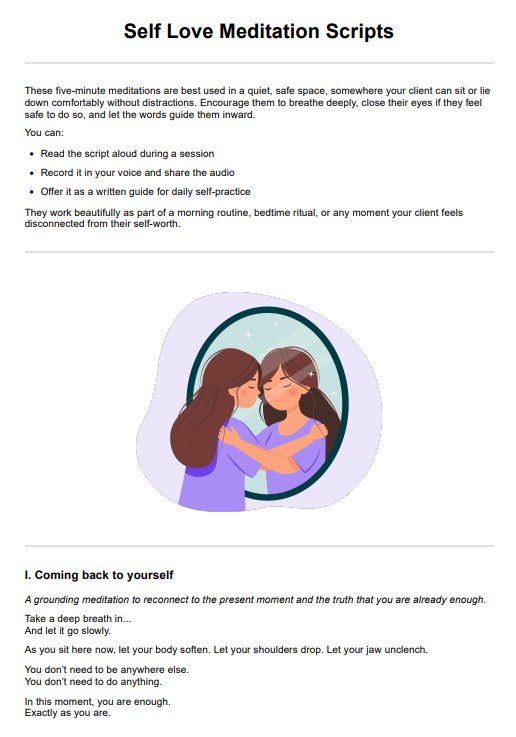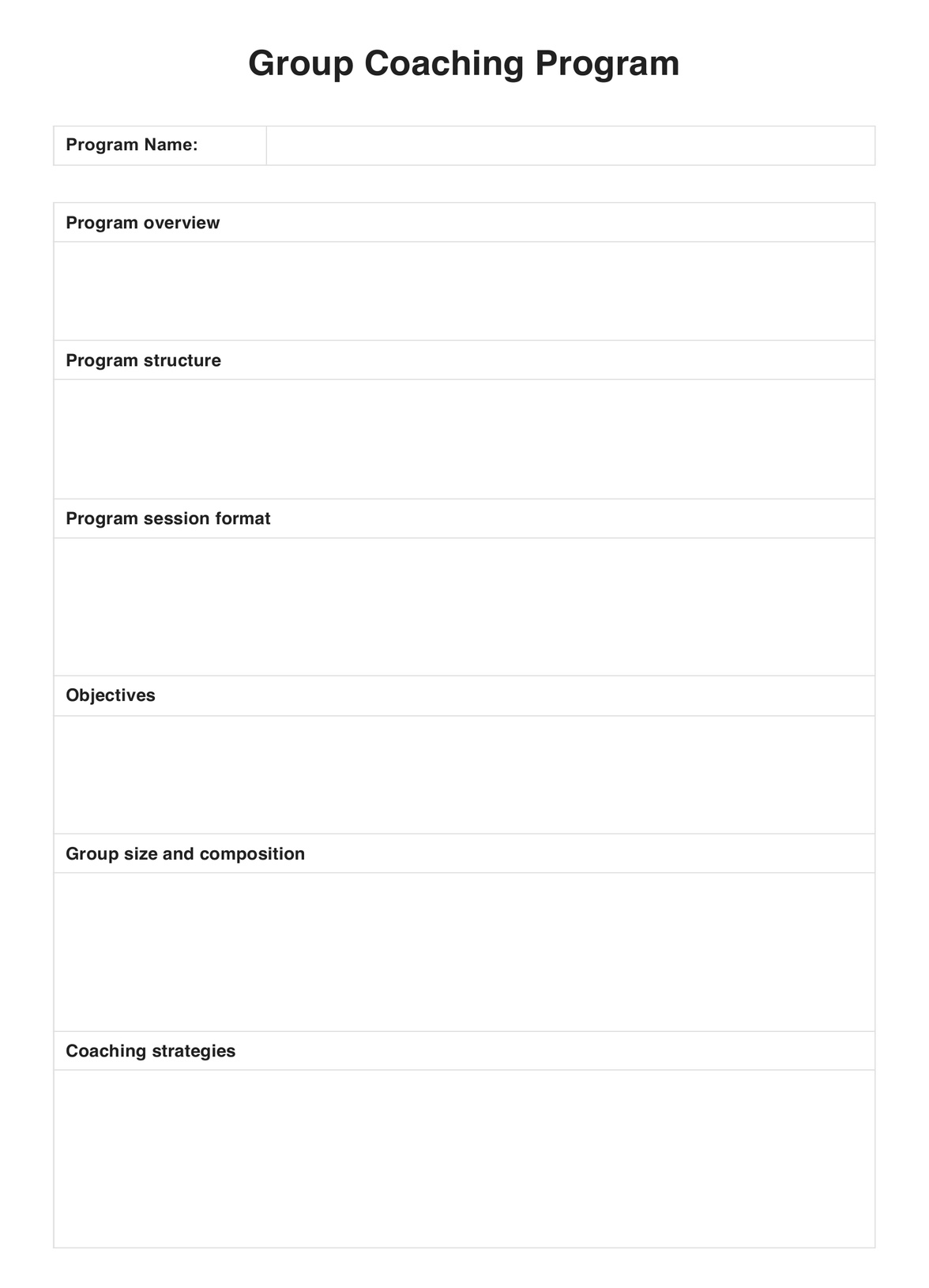Repressed Emotions Test
Explore the Repressed Emotions Test, a vital tool for mental health professionals to help patients uncover and address hidden emotions.


What are repressed emotions?
Repressed emotions refer to feelings that individuals unconsciously push away or avoid, often due to various factors like childhood trauma, societal expectations, or personal beliefs. Unlike suppression, where one deliberately tries not to think about specific thoughts or feelings, repression happens without the person's conscious knowledge. These emotions, though hidden, don't vanish; instead, they linger in the subconscious and can subtly influence behavior and mental well-being.
The concept of emotional repression dates back to the early work of Sigmund Freud. Freud posited that repression serves as a defense mechanism, allowing individuals to cope with trauma or anxiety-inducing thoughts by pushing them out of conscious awareness. This theory laid the groundwork for understanding how unresolved emotions could impact mental health.
Modern psychology continues to explore emotional repression, often with a focus on its long-term effects. While repression can temporarily alleviate emotional pain, it can lead to psychological distress over time. Unaddressed repressed emotions can manifest in various mental health issues, affect relationships, and impact the overall quality of life.
Consequently, recognizing and addressing these hidden emotions are critical steps in therapeutic processes and personal growth. Understanding repressed emotions helps heal past wounds and plays a crucial role in improving one's emotional intelligence and resilience.
Repressed Emotions Test Template
Repressed Emotions Test Example
Symptoms and signs of repressing emotions
Recognizing the symptoms and signs of suppressed emotions is vital for both individuals and mental health professionals. These indicators can vary but often manifest in both emotional and physical forms. Here are some common symptoms:
Emotional numbness or disconnect
One of the primary signs of repressed emotions is a sense of emotional numbness or disconnect. Individuals may feel detached from their emotions or find it hard to experience negative and positive emotions.
Unexplained physical symptoms
Repressed emotions can manifest physically, often as unexplained aches, pains, or chronic fatigue. These symptoms typically have no clear medical cause and can be a body's response to unresolved emotional distress.
Sudden emotional outbursts
Sudden, unexplained outbursts of intense emotions, such as anger or sadness, can indicate repressed negative emotions. These outbursts might seem disproportionate to the situation and can release pent-up emotions.
Difficulty in relationships
Difficulty forming or maintaining relationships can be a sign of emotional repression. Individuals might struggle with intimacy or vulnerability, impacting their ability to connect with others deeply.
Anxiety or depression
Chronic anxiety or depression, common mental health conditions, can sometimes stem from repressed emotions. The continual effort to push away certain feelings can lead to an overall decrease in mental well-being.
Avoidance of emotional situations
A tendency to avoid situations that might evoke emotions, such as social gatherings or intimate conversations, is another indicator of repressed emotions.
Recognizing these symptoms is the first step in addressing the underlying repressed emotions. Mental health professionals must help patients explore these signs and guide them toward emotional healing.
Recognizing emotional repression in your feelings
Identifying emotional repression within one's feelings is crucial to vibrant health. Repressed emotions can be elusive, often hidden from our conscious awareness. However, certain feelings or emotional patterns can signal their presence. Here are vital aspects to consider:
- Consistent emotional flatness: It might indicate repression if you frequently feel emotionally flat or indifferent. This flatness often masks deeper, unresolved emotions.
- Disproportionate reactions: Overreacting or underreacting to situations can signify repressed emotions. You might cry or get angry unexpectedly due to negative feelings or show little emotion in situations that typically evoke a strong response.
- Inexplicable mood swings: Sudden mood changes, especially when they seem unconnected to current events, can suggest buried emotional issues involving strong emotions. These can be an emotional response to buried issues.
- Feeling overwhelmed without clear cause: If you often feel overwhelmed or anxious without an apparent reason, it may be due to underlying repressed emotions surfacing.
Recognizing these patterns in your feelings can be challenging, requiring introspection and self-awareness. Mental health professionals can play a vital role in helping individuals understand and explore these subtle emotional cues, paving the way for addressing and processing repressed emotions.
Recognizing emotional repression in your behavior
Behavioral patterns can also reveal signs of repressed emotions. Often, these behaviors are unconscious coping mechanisms developed over time. Recognizing these patterns can be crucial in understanding and addressing emotional repression. Here are some common behavioral indicators:
- Avoidance of emotional topics: Consistently steering clear of conversations about feelings or emotional experiences can be a sign of repressed emotions. This avoidance is often a defense mechanism to prevent confronting uncomfortable emotions.
- Substance use or overindulgence: Engaging in substance abuse or overindulgence in activities like eating, shopping, or working excessively can be a way to distract from emotional pain.
- Withdrawal from social interactions: If you have trouble expressing yourself, withdraw from friends and family, or avoid social activities you once enjoyed, it may indicate an underlying struggle with repressed emotions.
- Compulsive behaviors: Compulsive behaviors, such as obsessive cleaning or repetitive rituals, can sometimes be responses to unaddressed emotional issues.
Recognizing these behavioral signs is crucial for both individuals and mental health professionals. It's an essential step towards uncovering the deeper emotional issues that must be addressed and worked through in therapy.
How does this test work?
The Repressed Emotions Test is a structured approach for mental health professionals to help patients identify and understand their repressed emotions. It encourages self-reflection and awareness, providing a foundation for therapeutic intervention. Here's how the test can be effectively utilized:
Step 1: Access this template
First, access the Repressed Emotions Test template through the Carepatron app. This template is adaptable for various clinical settings, ensuring ease of use for therapists and patients.
Step 2: Explain the template
Introduce the test to your patient, explaining its purpose and how it can help identify repressed emotions. Ensure they understand this is a tool for insight, not diagnosis, and it’s meant to guide therapy.
Step 3: Guide through self-assessment
Assist your patient in completing the test, encouraging honest and reflective responses. This step involves exploring their feelings, physical symptoms, and behaviors that might indicate repressed emotions.
Step 4: Discuss historical and situational factors
Review the patient's responses to questions about past events and current stressors that might contribute to emotional repression. This discussion can provide context for understanding their emotional patterns.
Step 5: Identify coping strategies and emotional expression
Evaluate the patient’s current coping mechanisms and their effectiveness. Discuss how they wish to express their emotions more healthily.
Step 6: Develop an action plan
Work with your patient to develop an action plan based on the insights gained. This plan should include specific goals for improving emotional awareness and expression.
Step 7: Provide ongoing support and review
Offer continuous support as your patient works through their repressed emotions. Schedule regular reviews to track progress and adjust the therapeutic approach as necessary.
By following these steps, mental health professionals can effectively use the Repressed Emotions Test to guide their patients toward greater emotional awareness and healing.
Tips for releasing your emotions
Learning to release repressed emotions is vital to emotional healing and mental well-being. Here are some effective strategies that can help individuals process and express their emotions healthily:
Practice mindfulness and meditation
Mindfulness and meditation can help you become more aware of your feelings, especially those deeply buried. Regular practice can make it easier to identify and process these feelings.
Engage in expressive writing
Journaling or writing about your feelings can be a powerful way to release emotions. It allows you to explore and express thoughts and feelings that you might not be comfortable discussing out loud.
Seek professional help
A mental health professional can provide a safe and supportive environment to explore repressed emotions. Therapy can offer guidance and techniques for effectively processing and releasing these feelings.
Develop healthy coping skills
Learning and practicing healthy coping skills, such as deep breathing, progressive muscle relaxation, or engaging in hobbies, can help manage emotional stress and release repressed emotions.
Establish a supportive social network
Having a supportive social network to share your feelings can be immensely helpful. Confiding in trusted friends, family, or support groups can provide comfort and validation.
Allow yourself to feel
Permit yourself to feel your emotions without judgment. Acknowledging and accepting your feelings, even the painful ones, is crucial in healing.
Use creative outlets
Creative activities like painting, music, or dance can be therapeutic. They offer a non-verbal way of expressing emotions and can be particularly helpful for those struggling to articulate their feelings.
Implementing these tips can significantly aid in releasing repressed emotions, leading to improved mental health and emotional well-being.
Other useful resources for emotional regulation and literacy
Alongside the Repressed Emotions Test, other valuable resources can aid emotional regulation and literacy. These tools and techniques can complement the test, offering a more comprehensive approach to understanding and managing emotions. Here are some valuable resources:
- Cognitive Behavioral Therapy (CBT): CBT effectively identifies and changes negative thought patterns that can influence emotions. It helps in developing healthier thinking, which can improve emotional regulation.
- Dialectical Behavior Therapy (DBT): DBT teaches skills to manage painful emotions and decrease relationship conflict. It’s beneficial for those who experience intense emotional responses.
- Emotion-Focused Therapy (EFT): EFT is designed to help individuals understand and change their emotional responses. It’s based on the principle that emotions are crucial to identity and decision-making.
- Mindfulness-Based Stress Reduction (MBSR): MBSR programs teach mindfulness techniques to help individuals become more aware of their thoughts and feelings in the present moment, which can aid in emotional regulation.
- Emotional intelligence training: Courses or workshops on emotional intelligence, including Emotional Intelligence Tests, can enhance one's ability to understand and manage emotions, personally and in interactions with others.
- Support groups: Joining support groups can provide a sense of community and shared experience, which can help learn and practice emotional regulation skills.
- Books and online resources: Books on emotional health, TED Talks, podcasts, and online courses can provide additional insights and strategies for managing emotions effectively.
Utilizing these resources can significantly enhance an individual's ability to understand and regulate emotions. For mental health professionals, recommending these additional tools can supplement therapy and support patients in their journey toward emotional well-being.
When is it time to see a mental health professional?
Deciding when to seek help from a mental health professional is essential in caring for your emotional and psychological well-being. Here are some indications that it might be time to consult with a therapist or counselor:
- Persistent feelings of sadness or anxiety: If you are experiencing ongoing sadness, anxiety, or mood swings that interfere with daily life, it’s advisable to seek professional help.
- Difficulty coping with daily life: A mental health professional can offer support and strategies when everyday tasks become overwhelming, or you struggle to cope with routine responsibilities.
- Significant changes in behavior or sleep patterns: Noticeable changes in eating or sleeping habits or how you interact with others can show that professional guidance is needed.
- Experiencing trauma or grief: If you’ve gone through a traumatic event or are dealing with grief and finding it hard to move forward, therapy can provide a safe space to process these experiences.
- Feeling isolated or withdrawn: Withdrawing from social activities or feeling persistently isolated, even when around others, can indicate underlying mental health issues.
- Substance abuse or other harmful behaviors: Turning to substances or engaging in unhealthy behaviors as a coping mechanism is a clear sign that professional help is needed.
- Thoughts of harm to self or others: If you have thoughts of harming yourself or others, it’s crucial to seek immediate professional assistance.
Recognizing these signs and seeking help is a courageous step towards healing and improving your quality of life. Mental health professionals can provide the support, tools, and treatment needed to navigate these challenges, such as worksheets for identifying emotions and skills for regulating them.
Why use Carepatron as your mental health software?
Carepatron stands out as a comprehensive solution for mental health professionals, offering a range of features that enhance practice management and client care. Here's why Carepatron is an ideal choice for your mental health software needs:
- Integrated client management: Carepatron provides a robust client management system, allowing for efficient client data organization, including detailed profiles, treatment histories, and session notes.
- Streamlined scheduling and reminders: The platform offers advanced scheduling capabilities with automated reminders, reducing missed appointments and helping clients stay engaged with their treatment.
- Secure data handling: With a focus on confidentiality, Carepatron ensures safe and compliant storage of client information, building trust and maintaining professional standards.
- Telehealth features: The integrated telehealth functionality makes it possible to conduct remote counseling sessions, providing flexibility and accessibility to clients who cannot attend in person.
- Customizable templates and tools: Carepatron offers a range of templates, including assessment tools like the Repressed Emotions Test and the Emotion Wheel Worksheet, which can be tailored to meet specific therapeutic needs.
- Efficient billing process: The platform simplifies billing and payment processes, making it easier to manage the financial aspects of your practice.
- User-friendly interface: Designed for ease of use, Carepatron's user-friendly interface ensures that therapists and clients can navigate the system effortlessly.
By choosing Carepatron, mental health professionals can elevate their practice, ensuring efficient management, secure client care, and improved therapy outcomes. Explore Carepatron for a seamless, integrated experience in mental health practice management.
.png)
Commonly asked questions
Signs of repressed emotions include emotional numbness, unexplained physical symptoms, sudden emotional outbursts, and changes in behavior or relationships. These indicators suggest underlying emotions that are not being consciously addressed.
Repressed emotions can lead to mental health issues like anxiety, depression, and stress. They can also manifest physically as chronic pain or fatigue and negatively impact relationships and overall quality of life.
Managing emotions healthily allows for emotional growth, better stress management, and healthier relationships. In contrast, suppressing emotions can lead to mental and physical health problems and hinder personal development.


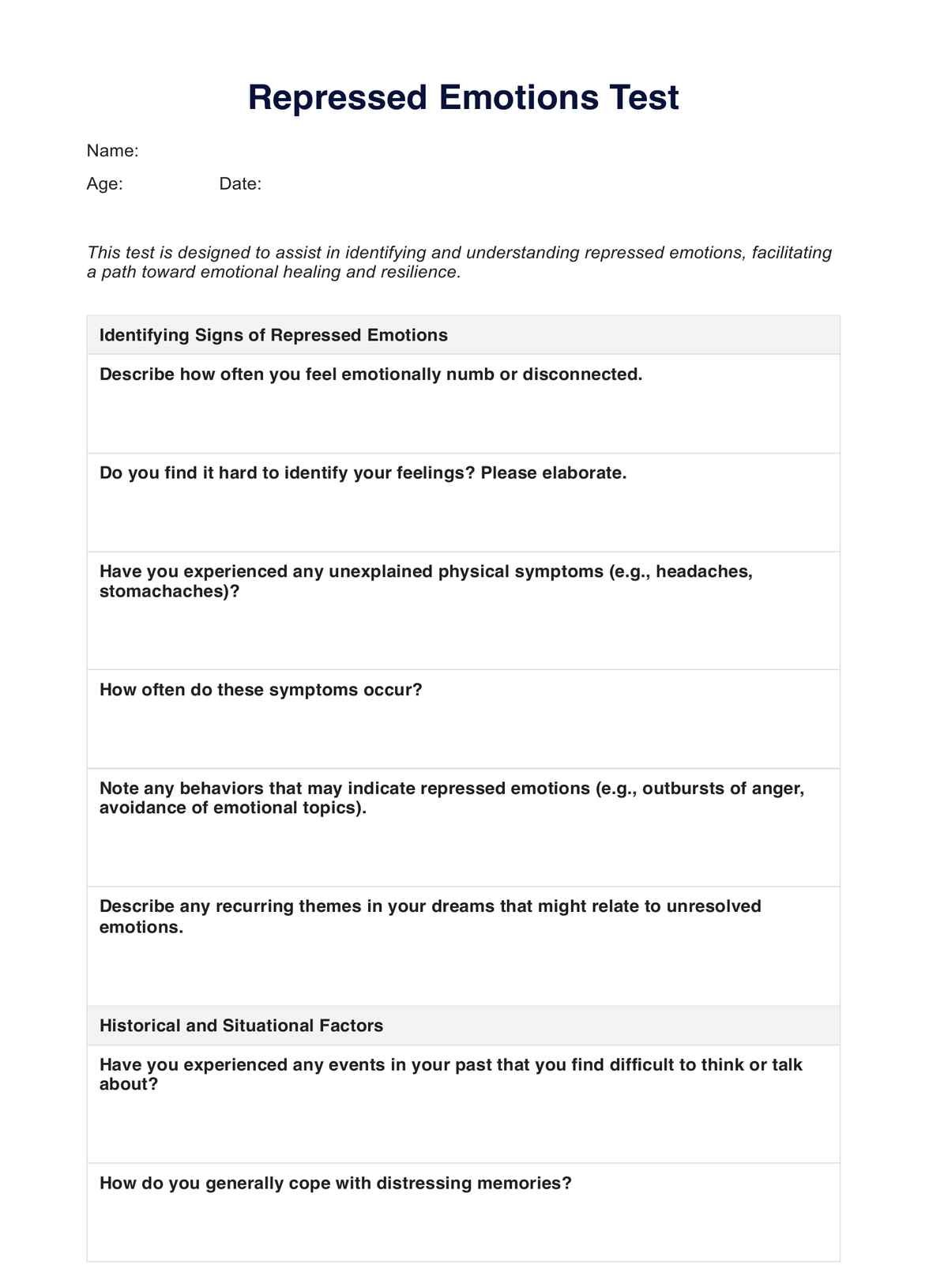
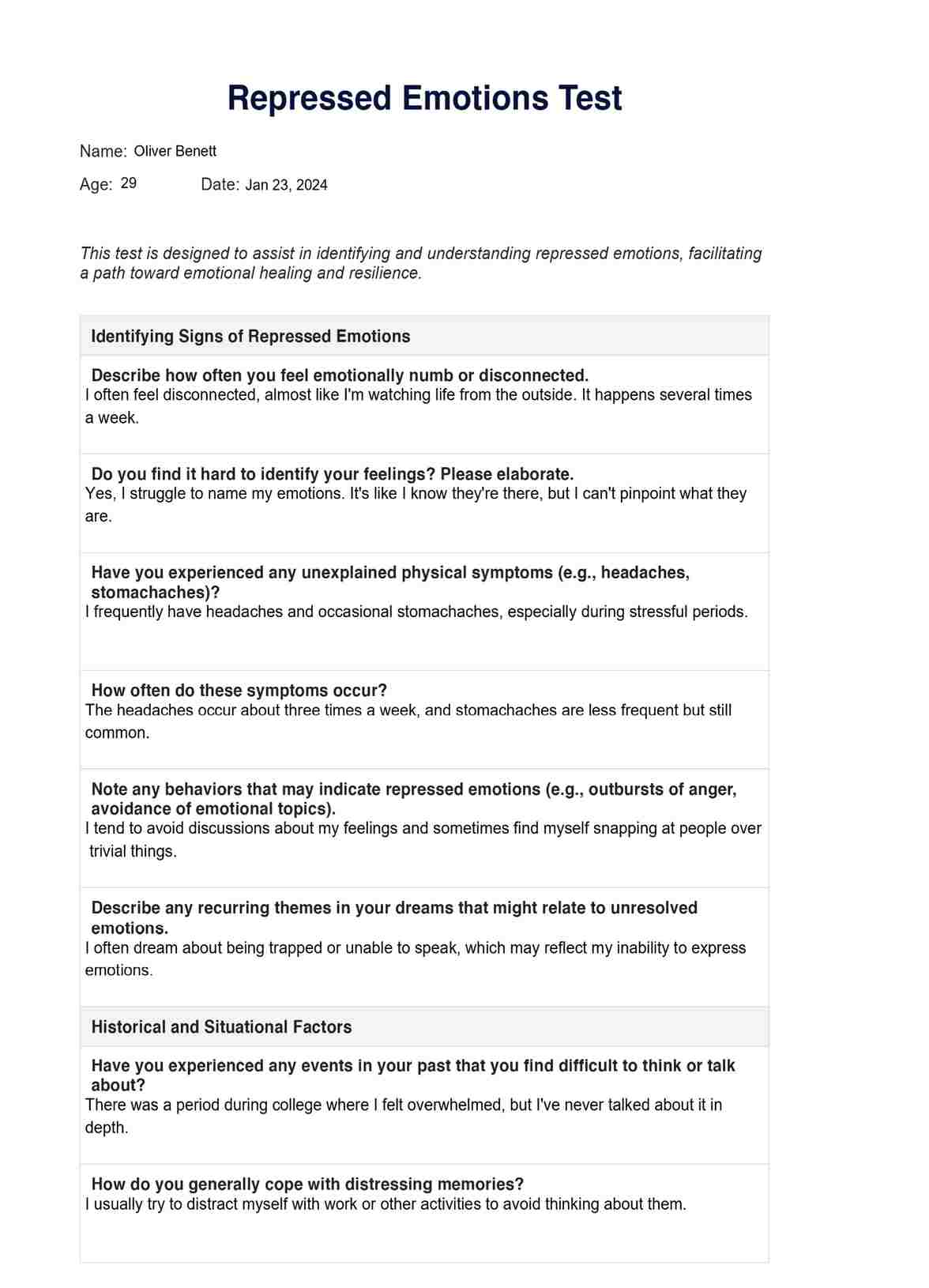



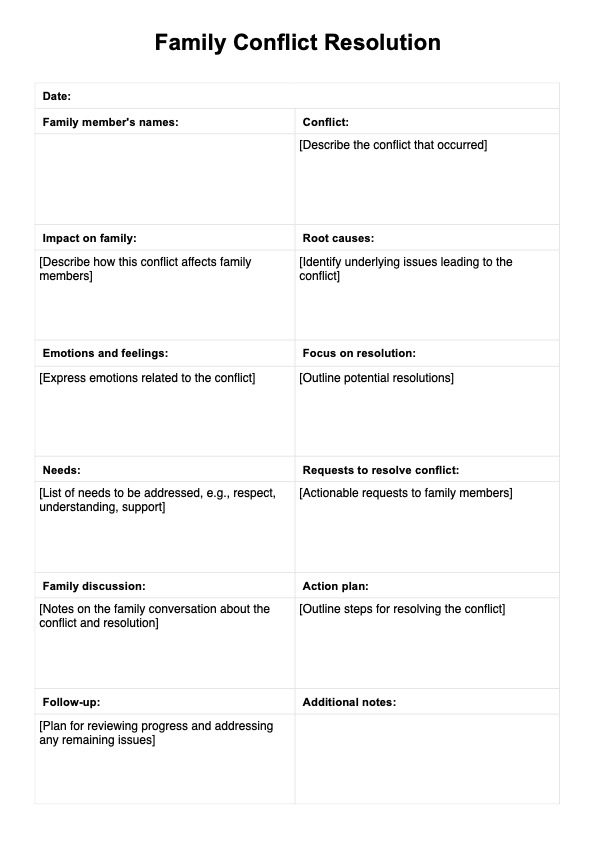













-template.jpg)


